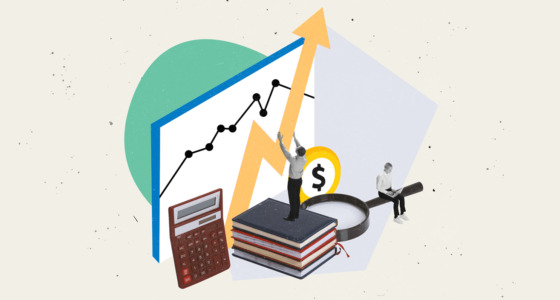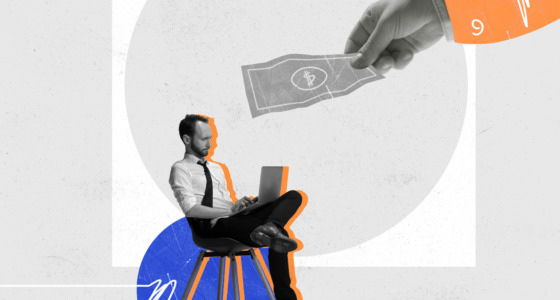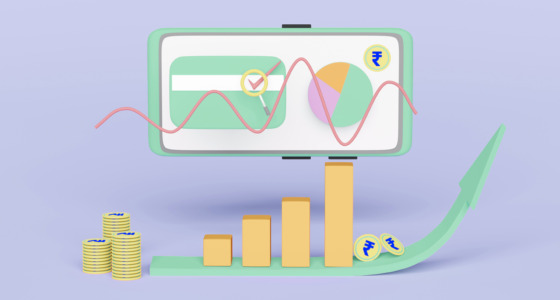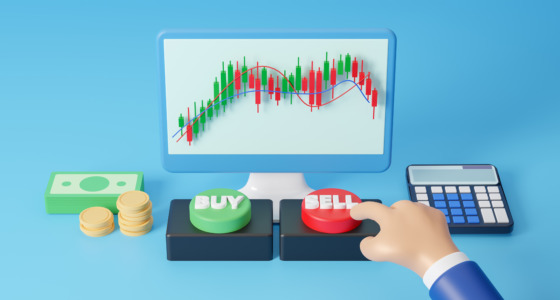

It’s easy to open an online trading account. Many brokers/trading platforms provide various services and a wide range of assets, have different interfaces, and are legal in many countries. It’s not surprising – after all, the worldwide online trading platform market was worth around $8.6 bn in 2021.
However, before starting researching tons of accounts, you should know some key factors that will help you make a choice.
What you will need to open a trading account
No two trading accounts are the same, and you need to decide what type of service you need before opening an account. First things first, decide whether you want to trade in forex, futures, options, stocks, and so on. Then, find a trading account that can offer you exactly what you need.
Since you will be dealing with personal finances and possibly high amounts of money, you also have to be forthcoming about your details. This can include:
- · Full name
- · Address
- · Birth date
- · Phone number
- · Social Security Number (SSN)
- · Employment status
- · Citizenship status
- · Trading experience (Level)
Each trading account is different, so you may want to look over the requirements.
Account types
There are some account classifications to keep in mind.
1. Demo and real
A demo trading account is used to examine the platform’s interface, practice strategies and methods, test indicators, and analyze price actions. When using a demo account, you aren’t using your own funds. A broker or a trading platform provides you with fake funds just for testing purposes. There are no trading account age limits or initial investments since you don’t get real returns.
A real account has stricter rules. You must pass identity or age verification, as real trading is available only for individuals over 18. This type of account allows you to open real trades and get returns if your price forecasts are correct. Most brokers/trading platforms don’t require an initial deposit to open a real account. Still, this requirement arises when you start trading, even with leverage.
2. Cash and margin
Cash is an account that requires an investor to pay the total amount of assets they invest in. This account type suits you if you plan to open small positions. Also, it limits losses if your forecast is incorrect.
A margin account is the most common account type, and almost every broker or a trading platform provides it. You can open a trade with just $100. The rest is provided by your broker or a trading platform and is called leverage. When trading with leverage, you increase the number of opportunities to trade different assets at once and can open positions of any size. However, there is a big pitfall—larger funds lead to more significant losses.
Key points when choosing a trading account
Now you know what the account types are and can select them precisely. Next, review these key points. When you choose a broker or a trading platform, you have to figure out which one fits your needs the most.

Choosing a broker or a trading platform
1. Payment methods
You should start with payment methods to be sure you can deposit funds via bank transfers, cards, digital wallets, or any other method you have. Also, you should check what withdrawal methods the broker or a trading platform supports. There can be issues if the firm does not support your payment methods.
2. Trading account assets
If you are ready to trade, it’s likely you know what assets suit your trading approach the most. Usually, brokers/trading platforms offer many financial instruments, including stocks, cryptocurrencies, currencies, and metals. However, some focus on specific assets. Start by checking what assets the broker or a trading platform offers.
3. Margin account
It’s likely that you will open a margin account. Check what leverage ratios the broker or a trading platform offers and what initial requirements it has. If you have $100 and a broker or a trading platform only offers 1:10 leverage, it’s unlikely that $1,000 will be enough to trade for the long term.
4. Commissions and fees
How much do they charge for every trade that you make? Do you have to concern yourself with high maintenance fees? What about inactivity fees, in case you want to take a temporary break from trading? Learn about all these fees beforehand.
Some brokers/trading platforms take fees for providing leverage if you hold a position open for at least one night. Also, a broker or a trading platform may charge account maintenance or inactivity fees. Remember there is a spread that is taken for every trade you open.
5. Minimum account balance requirement
Almost every trading account will need a minimum balance and deposit requirement. In some cases, it’s as little as 0% – but if it’s not, you’ll want to know. Some brokers will require that you keep a minimum amount of money in your account throughout the year. Make sure it’s something you can keep up with.
Some brokers/trading platforms may require you to deposit a certain amount to open an account, and you can’t cross under the minimum throughout the year. Different brokerages may have different minimum balances or may not have this requirement at all.
6. Friendly interface
When opening your first trading account, you’ll experience various feelings, from joy to anxiety. You don’t know how to open the first trade, where to deposit funds, and how to reduce potential risks. Therefore, the platform’s interface shouldn’t be an additional problem for you. Open a demo account to test its functionality.
7. Margin and leverage rate
Think about the amount of margin and leverage that your broker can offer for day trading. This will help you make better trades and hold a good position for longer. Think about your trading strategy and figure out which margin or leverage works best for you.
Learn how to trade
The market is rather complex, and you need to be very careful about the trading moves you make. If you are a beginner, you may want to get some trading education first. A trading simulator may be a helpful tool here.
You may also join online chatrooms or subscribe to a trading course. Webinars are also a good way to teach yourself more about trading from the comfort of your own home. It’s best to get advice from professionals and to practice your trading first. A trading account that also features a demo version may be a good tool.
Takeaway
There are minor requirements to open an online trading account, including age and initial deposit. Moreover, numerous brokers/trading platforms allow you to trade different assets with leverage. However, to avoid issues, you should do a comprehensive analysis.








